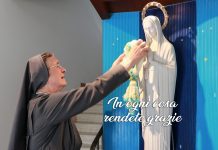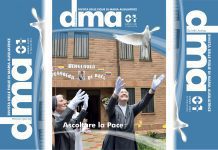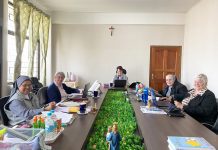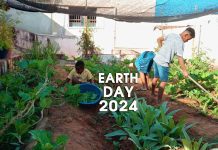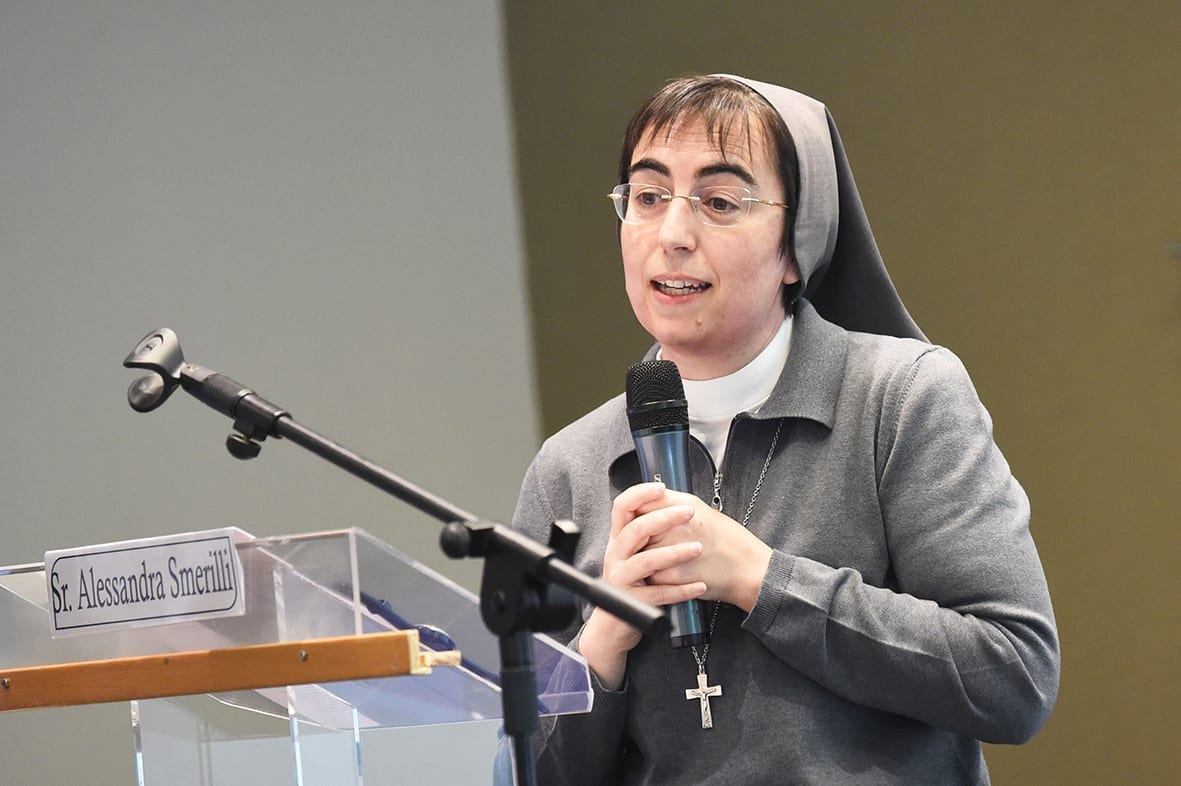Rome (Italy). Sr. Alessandra Smerilli, Daughter of Mary Help of Christians, Councilor of State of Vatican City and Professor of Economics at the Pontifical Faculty of Education Sciences “Auxilium” in Rome, was called to be part of the “Women for a new Renaissance” task force, desired by the Minister for Equal Opportunities and the Family, Professor Elena Bonetti, to organize a restart plan for Italy after the Covid-19 pandemic.
The task force was set up to face the current challenges for restarting the economic and social system in Italy in the short term, with the presence of qualified people able to offer a contribution for the preparation of proposals and documents, including those of an innovative nature. It is a women’s work group, made up of 13 women, equipped with “biological resistance, resilience in the management of emergencies, capable of team work, and willing to adapt,” which are significant elements for the recovery and development of the Nation .
What are the specific attentions of the task force?
This pandemic brought the theme of care and caring for each other back to the center. This could be an occasion for giving attention to women. It could be an opportunity to review the social rules on work, on the division of tasks. Some changes are already taking place in families: having to stay at home, both dad and mom collaborate more in family management. In this situation, the opportunity could be taken to make proposals regarding work and care for both men and women, by rewriting some rules.
Another attention concerns the impact of the virus on the most fragile and vulnerable people, in this case the elderly. And this also from an economic point of view: the fact that we had to stop affected everyone in an indistinct way, regardless of the type of work done, but those who suffer the consequences are the most vulnerable and most fragile people. The intent is to support those who are weaker.
The method we will work with is that of analyzing the situation, all the data available for Italy and the world – in particular relating to the condition of women. From this analysis it will be necessary to understand what resources are available for women to implement and from these, make proposals.
What are the educational impacts of this task force?
The task force is related to the Ministry of Equal Opportunities and the Family, therefore it is not directly related to education. However, the Minister’s idea is to develop proposals that are for everyone. At the educational level, there will certainly be an assessment of the impact of Phase 2 especially on the youngest, children aged 0 to 6, those who have been most ‘affected’ at this time compared to adolescents and young adults who have been able to continue their educational and teaching activities. It will be necessary to evaluate how to allow socialization and education outside the family, which are important for this group. Furthermore, the issue of differences due to varied access to digital tools and the possibility of connection will be fundamental. It is important that those with fewer opportunities are not excluded from education and training. If it is necessary to continue with distance learning, it is urgent to study what to do so that the poorest are not excluded. This theme is also linked to understanding which new skills should they should train for and which paths should be activated, especially for women, to make a contribution to the restart.
How are you living this mission?
Initially I didn’t think I could be up to a group of people of this caliber, but then I understood that the preparation was evaluated even before belonging and I felt I had to make myself immediately available. I understood that it could be for the concrete good for Italy, that being there was important, and I had to try to do something. Then in the group, already from the first meeting that was held on April 15, 2020 by videoconference, I saw how many proactive women there are, and also the mutual esteem and welcome that I received as a scholar and as a religious. I think that Italy, but also the whole world can do it if we really manage to collaborate without labels, without distinctions, without ideological or cultural barriers, and this group of women has all the characteristics to accomplish this operation.
” Women for a new Renaissance “: what meaning does this expression have for the FMA?
Obviously, as the FMA, we have in our DNA attention to women, young women, and to work, because there is no discrimination and because there has been what was perhaps a word most used in the past: empowerment. So I felt I was on a mission in a certain sense, to bring my skills and “do my bit for Italy”, which is perfectly in line with our FMA mission. And then it’s exciting to somehow bring Mary’s presence into a group that wants to work for rebirth. Renaissance, rebirth, says a lot about gestation and generation, so there is need for this vital breath.
What risks, opportunities, and signs of hope do you see in this situation?
The risks are those that really generate large pockets of poverty and exclusion if we do not prevent it. We already see that for example in Italy, the most disadvantaged by this blockade and by the possible recession that will follow on an economic level, are the women and young people who will find it more difficult in terms of employment.
At the same time, the sign of hope is that having to change the world also with respect to digitalization, regarding the ways of working and of educating, young people are at a higher gear and in this sense they could be resources for restarting. Clearly there is the whole theme – for us who are fundamentally educators – to accompany this process of transition to new ways of working and teaching, because if the vaccine does not arrive quickly, it will not be possible to resume school as before. Thus, I believe that the opportunity for us right now is having the light of an educational charism to think of and put into action innovative actions and proposals at the level of education and instruction that could also attract others.
What interrogations for young people, especially those involved in the work of “The Economy of Francis”?
What seemed an impossible thing – having to postpone the event – is actually proving to be a great opportunity. First of all, we are working with young people who had already been contacted. We are divided into 12 thematic villages, which are holding the reins of the works. I deal with the finance and humanity village and the work and care village and we are trying to identify the most important issues for finance and work with young people, compared to the emergency we are experiencing. Furthermore, while young people work in the villages, they try to propose other broader themes. What Assisi would not have allowed, because by staying there for only two days the young people would have worked physically in one place with those of their own village, can be accomplished now because we have 8 months. Time and space have expanded, so ideas can be developed that go beyond one’s own village and everyone can make contributions. We know that young people are very capable about making connections and proposals. Therefore, what we are trying to do is to coordinate them, making sure that they are the protagonists of this phase. They are also already organizing themselves into regional groups, which they would have had to leave after the Assisi event. So now we have a comparison of work by themes and regional groups at the world level, which they will then put together, trying to understand what all this can mean for their continent. The “The Economy of Francis” is here and now, we haven’t missed the event. An event that wanted to activate a process has perhaps become the process that will conclude with an event that will be a celebration.



